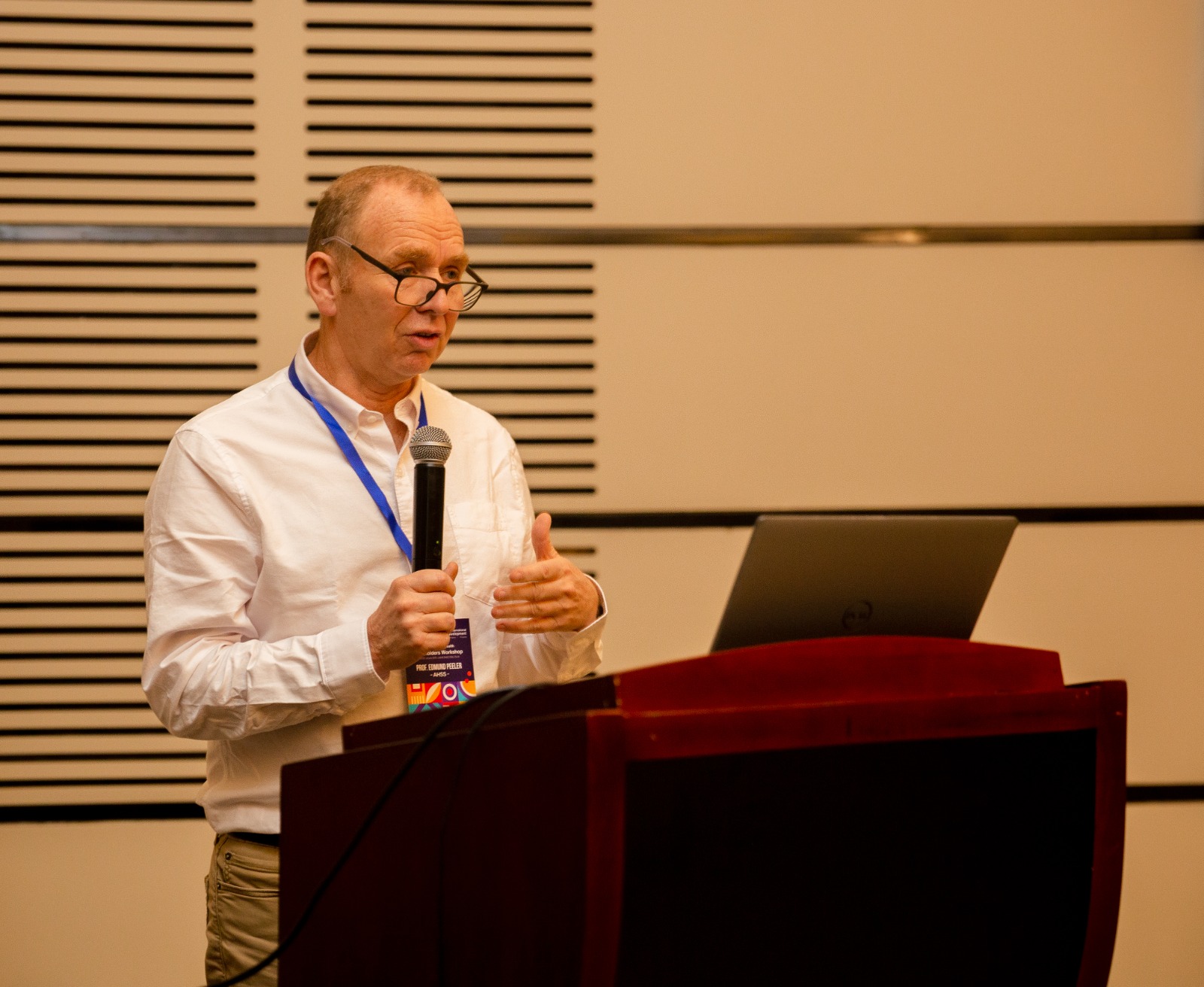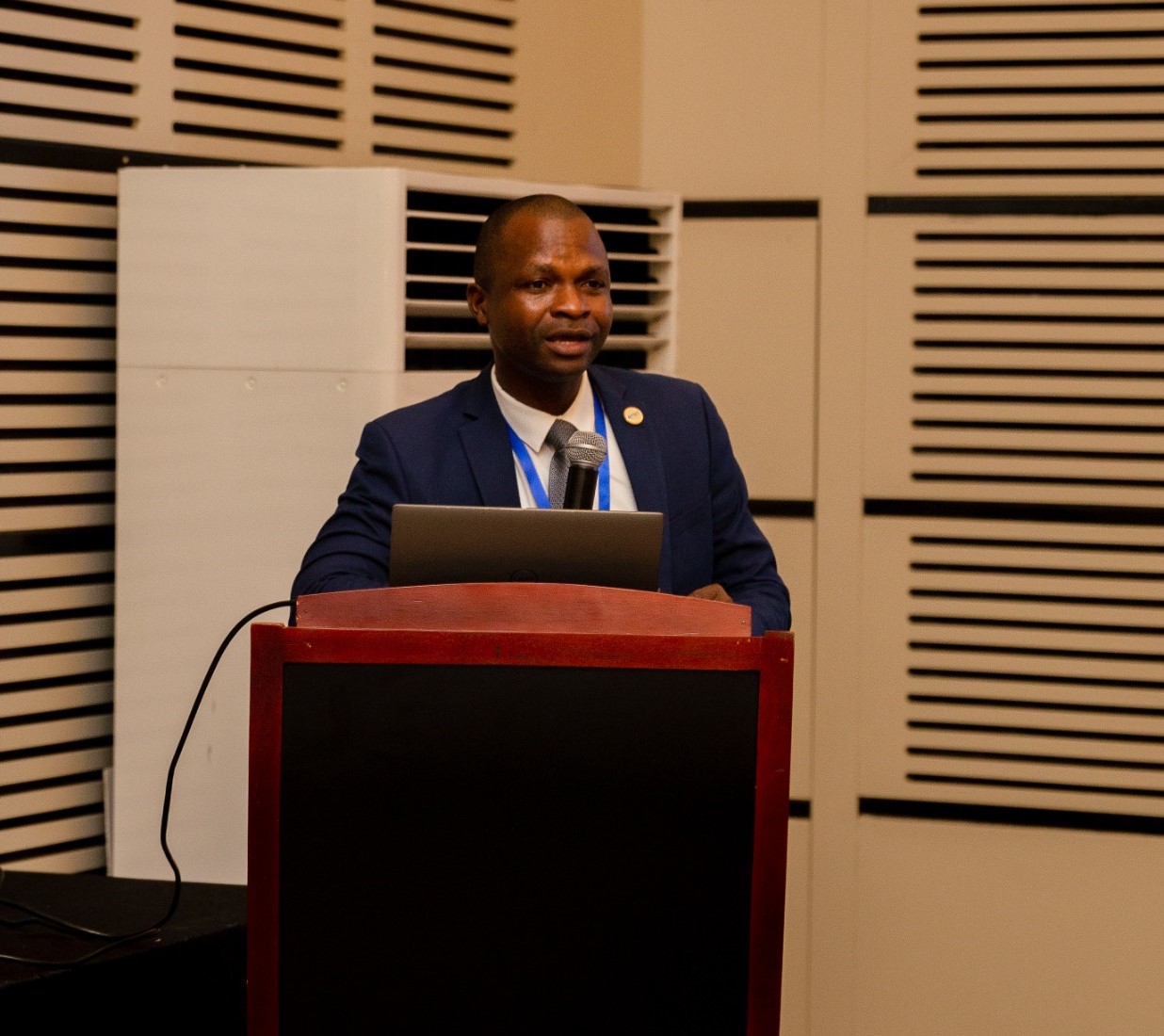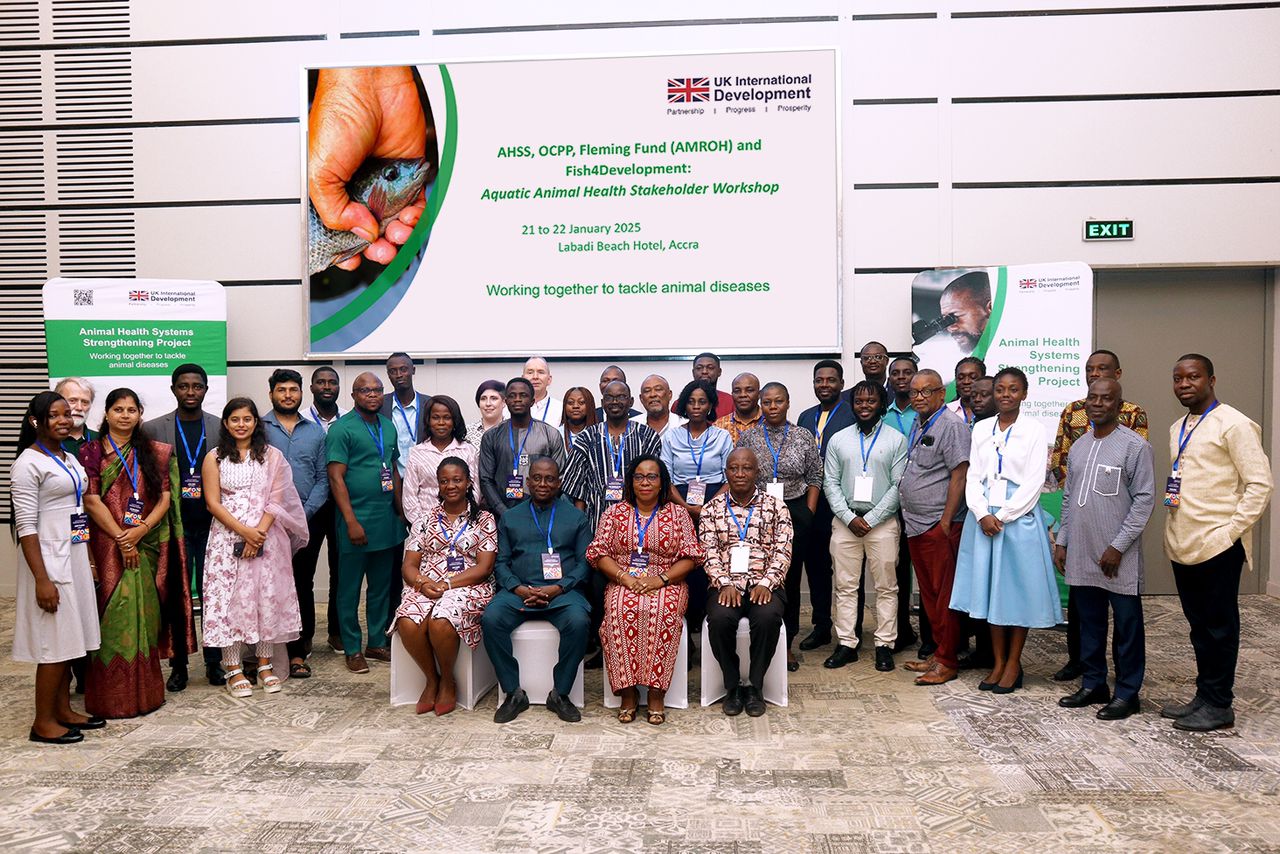The Aquatic Animal Health Stakeholder Workshop, held from January 21–22, 2025, at the Labadi Beach Hotel, brought together a dynamic blend of academia, government officials, and industry leaders in Ghana's aquatic sector. This pivotal event, part of the UK-supported Animal Health System Strengthening (AHSS) Project, addressed the urgent need for proactive and effective disease management strategies in aquaculture.
Organized in partnership with the Fisheries Commission, Veterinary Services Department, and UK agencies such as the Centre for Environment, Fisheries, and Aquaculture Science (CEFAS), the workshop spotlighted critical issues: contingency planning for exotic aquatic disease outbreaks, adapting to climate change, and managing emerging pathogens in Ghana’s fish farming industry.
A Call to Action for Ghana’s Aquatic Health
Speaking at the event, Madam Mary Nkansa, Head of the Fish Health Unit at the Fisheries Commission, delivered a powerful message on implementing Ghana’s Aquatic Animal Health Policy. She highlighted immediate actions to mitigate the risks posed by inadequate awareness of disease threats among stakeholders.
“We must enhance collaboration between industry players and governmental agencies to stay ahead of disease threats,” emphasized Madam Nkansa. “Proactive education and monitoring are vital to safeguarding our aquatic resources.” Madam Nkansa’s call for strengthened partnerships resonated deeply, especially as she outlined how the policy aims to build industry-wide readiness for potential emergencies through improved surveillance and rapid response systems.

Insights from the Field
Professor Edmund Peeler, a representative from CEFAS, shared eye-opening insights from fieldwork conducted in August 2024. His findings painted a clear picture of the challenges: resilient aquatic diseases that evade early detection due to funding gaps and a shortage of skilled personnel.
“Early detection is critical to controlling outbreaks, yet we are limited by insufficient funding and skilled resources,” Prof. Peeler explained. “A strategic focus on capacity building and field-level support is non-negotiable.” Prof. Peeler's observations underscored the need for Ghana to boost investments in research and to develop local expertise, a message that resonated strongly with attendees.
Bridging Trust and Building Awareness
The CEO of the Chamber of Aquaculture, Jacob Adzikah, brought the industry’s concerns to the forefront. He highlighted a pressing trust deficit between farmers and regulators and the limited awareness among small-scale farmers regarding exotic disease risks.
“Our farmers need to be equipped with knowledge about these diseases, and funding for research and education must be prioritized,” Mr. Adzikah stressed. “Collaboration and trust-building are the cornerstones of a resilient aquaculture industry.”
His presentation emphasized the importance of bridging these gaps through expanded educational outreach and fostering stronger relationships between stakeholders.

Toward a Unified Approach
The workshop closed on a resounding note of unity, as stakeholders called for a robust “One Health” strategy—an integrated approach combining human, animal, and environmental health to combat zoonotic threats and other disease risks.
The discussions underscored an urgent need for action. Stakeholders agreed that tackling aquatic health challenges in Ghana requires collaboration across all sectors and bold investments in research, education, and capacity building.
The Aquatic Animal Health Stakeholder Workshop has set a clear agenda: to build a resilient, disease-aware aquaculture industry capable of navigating the challenges posed by climate change, emerging pathogens, and exotic aquatic diseases.
With the combined efforts of policymakers, scientists, and industry leaders, Ghana’s aquaculture sector is poised for a brighter, healthier future.

